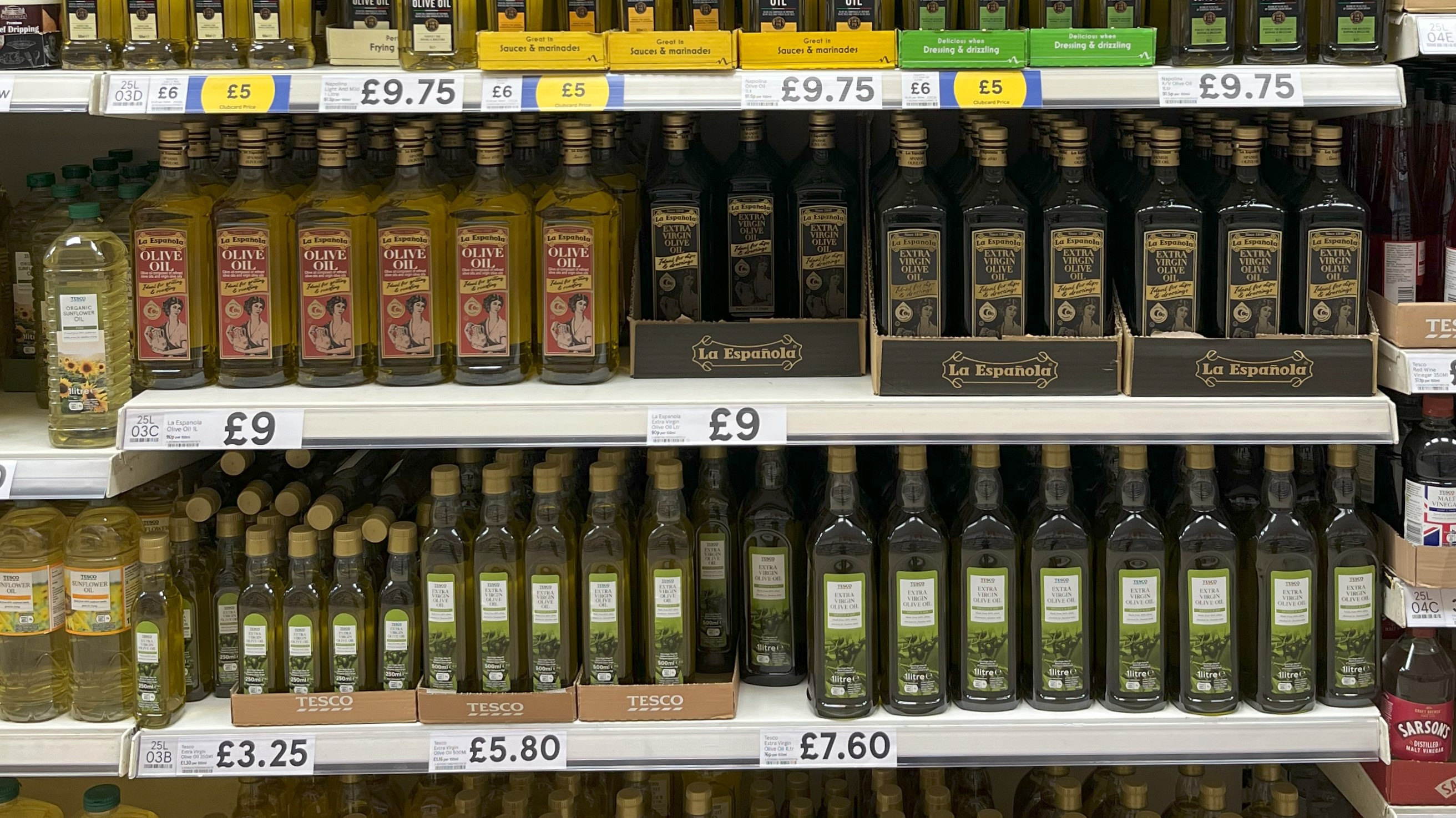Choosing an extra virgin olive oil can be a challenging task if you’re looking for authenticity. In an industry full of misleading labels and misinformation, finding an EVOO that you love from a producer that you trust can be difficult. We’ve broken it down for you, so you know what to look out for. When shopping, check the labels for the following:
- Look for the 'Extra-Virgin' Label: The term "extra virgin" refers to the highest quality classification of olive oil. To be labelled as such, the oil must meet industry standards regarding its production process, chemical composition, and sensory characteristics. These standards include factors such as low acidity, no defects in flavour or odour, and the use of mechanical methods (rather than chemical or heat-based processes) in extracting the oil from the olives.
- Country of origin: Look out for the country of origin so you know the provenance of your extra virgin olive oil – many labels will state that the oil is ‘packed’ or ‘produced’ in a certain country, but this does not reflect the actual source of the olives. This can be a loophole for large-scale producers to import oil from other countries and blend and produce them in their own and then label them as such. Traceability and short supply chains are key to obtaining an authentic, unadulterated product.
- Tasting notes and flavour profile: To make sure you're purchasing an oil that you'll get the most use out of (as we encourage you to enjoy EVOO liberally!), make sure you're reading the labels to find out which flavours suit your palate. As with wine, it's all about individual preferences. Once opened, your extra virgin olive oil is best consumed within 2-3 months, so ensure you choose a flavour profile that will work well with the food and recipes you cook frequently. We recommend trying a variety of Extra virgin olive oils to compare the flavour and aromas. (link to tasting page) Understanding the tasting notes will allow you to experience the unique characteristics of the oil.
- Look for a harvest date: When it comes to choosing high-quality extra virgin olive oil, one key indicator of freshness is the harvest date. The best producers are transparent about when the olives were harvested, and this information is crucial for ensuring that you're getting the freshest oil possible. Unlike other food products that may have sell-by or expiration dates, olive oil can be deceptive in this regard. Sell-by dates alone may not accurately reflect the freshness or quality of the oil. Large-scale, industrialised producers may have oils that have been stored in vats for extended periods, waiting to be bottled and distributed. This storage time can affect the flavour and overall quality of the oil.
- Avoid clear glass or plastic bottles: Understanding the vulnerabilities of extra virgin olive oil is crucial when it comes to maintaining its freshness and quality. The two main adversaries of olive oil are light and oxygen, and reputable producers are aware of this fact. Light and oxygen exposure can lead to oxidation, which will cause the oil to deteriorate, impacting its flavour, aroma, and nutritional properties. To avoid this, we recommend you steer clear of olive oils packaged in clear glass or plastic bottles. These materials do not provide adequate protection against the harmful effects of light and can accelerate the degradation process. Look for opaque tins or bottles.
- EVOO does not improve with age: Fresh is best! Unlike wine, extra virgin olive oil does not improve with age. EVOO's vibrant flavours, aromatic notes, and nutritional properties are most pronounced when the oil is freshly extracted from olives. Over time, exposure to factors such as light, air, and heat can lead to the degradation of the oil, resulting in a loss of its original qualities. After all, extra virgin olive oil is a fresh fruit juice. However, when stored and packaged correctly, extra virgin olive oil has a remarkable ability to maintain its freshness and quality for an extended period. Proper storage involves protecting the oil from light, air, and temperature fluctuations. Dark, opaque containers and cool, dark storage spaces will preserve your oils' integrity. It's worth noting that extra virgin olive oil has been employed as a preservative for centuries.
- 'First cold press': It's good to note that although widely used as a marketing term, this does not make your extra virgin olive oil any different from the next. There are strict legalities around the definitions for extra virgin olive oil, and EVOO only ever comes from the first cold pressing - without the use of heat or chemicals.
- Cultivar or Variety: High-quality extra virgin olive oil will disclose the types of olives used to obtain the oil. This will let you know if your oil is a blend or a monovarietal oil.
- Producer transparency: Good producers of extra virgin olive oil will be transparent about their producers and production line.
If you’re ever unsure about your extra virgin olive oil, contact the producer with any questions you may have about their product – in this industry, transparency is key.

